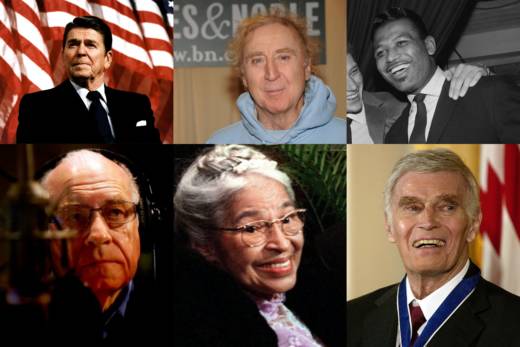Alzheimer's is currently the sixth leading cause of death in the U.S., according to the Alzheimer's Association. About 5.7 million Americans currently suffer from the disease, with around a half-million new cases diagnosed every year. Fourteen million Americans are projected to have Alzheimer's by 2050.
That is an enormous toll taken on patients and families. But unfortunately, the outlook on finding a cure is equally grim, as STAT reporter Sharon Begley recently reported. After more than 20 years of failure to reverse or slow the disease by targeting amyloid plaques in the brain, Begley writes, there are now literally no experimental drugs in late-stage clinical trials to treat moderate to severe Alzheimer's, the latter of which is characterized by extreme confusion requiring round-the-clock care patient care.
Begley spoke about her reporting with KQED's Brian Watt on Friday. The following is a transcript of the interview, edited for length and clarity.
On the lack of progress in Alzheimer's drug development
The last drug for Alzheimer's was approved in 2003. So 15 years and we have had nothing.
I talked about the situation with patient advocates and neurologists and people in the lab desperately trying to come up with something to help people. One expert used a term that made me just sit up and practically gasp. He called it "therapeutic nihilism." And by that he meant the disease has proved so challenging to scientists that people have almost given up.
In studies, drug after drug has failed. The drug companies have spent and lost billions of dollars trying to find something that works for Alzheimer's patients. And they're giving up.
On the contrast between activism around HIV/AIDS and the lack of advocacy around Alzheimer's
The amount of attention, drug development, et cetera for HIV/AIDS have been hugely impressive. And that's why I contrasted it with Alzheimer's, wondering: Where is the outrage over the lack of progress?
And there you have things like the age of patients. With HIV/AIDS, the tragic toll was, at least initially, on men in their prime. For Alzheimer's, primarily affecting people 65 and older, there's at least some sentiment that they've had a good life, that's the way it goes.
On the lack of drugs being tested for moderate to severe Alzheimer's
There's what's called a pipeline analysis done every year by researchers at the Cleveland Clinic. They look at all the experimental compounds being tested in patients, and they ask, "What kind of patients are they being tested in?"
They broke it down into people who do not have Alzheimer's but have some of the risk factors, and people who have mild, moderate or severe Alzheimer's. What really made me sit up was that the number of drugs being tested to see whether they can stop or even reverse the actual course of the disease in people with moderate or severe Alzheimer's is 1 out of 112.
We all hope they can stop Alzheimer's at earlier stages. We all know somebody who has Alzheimer's, and when they first get it if you could look at that person and say, wow, you don't actually have a diagnosis yet, but you're on the cusp, so here's a drug that will help you from getting Alzheimer's ... .
But there are 5.5 million people and growing that already have the disease. So what we're essentially saying to them is that it's really unfortunate but we have nothing that will help you. And if there's nothing in the pipeline for people with moderate to severe Alzheimer's, that means there will be nothing for anybody who is diagnosed in 2018, in 2019, and probably for the next 10 years.
